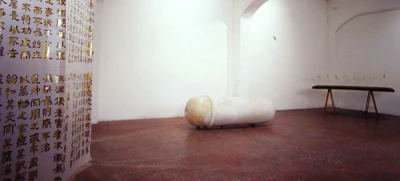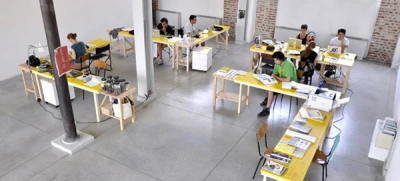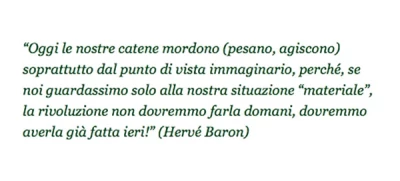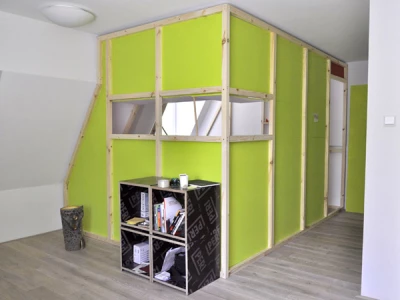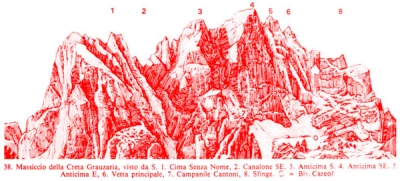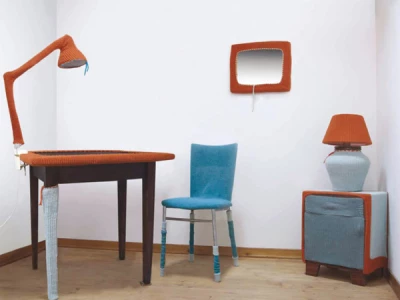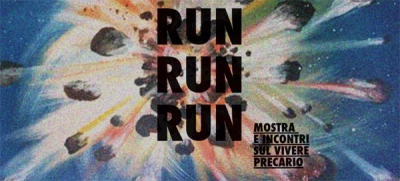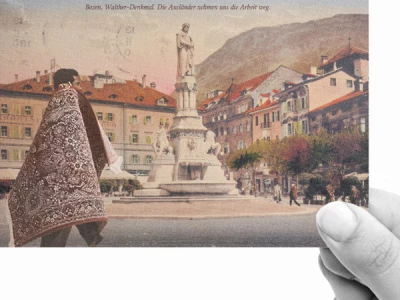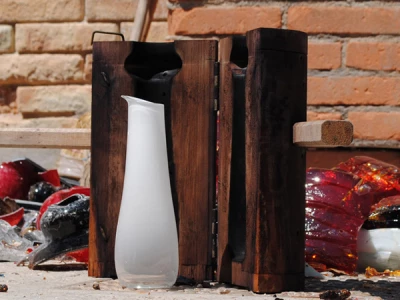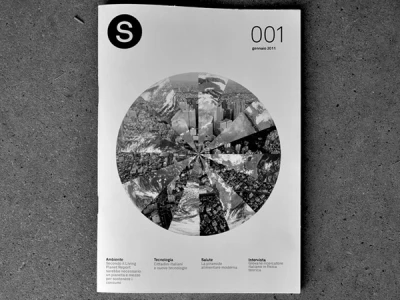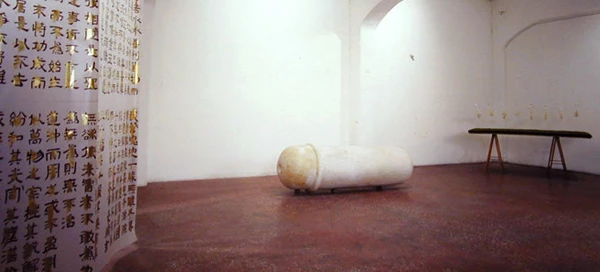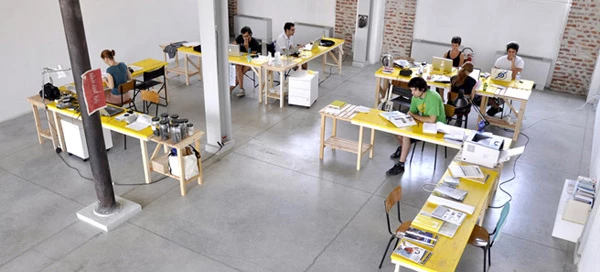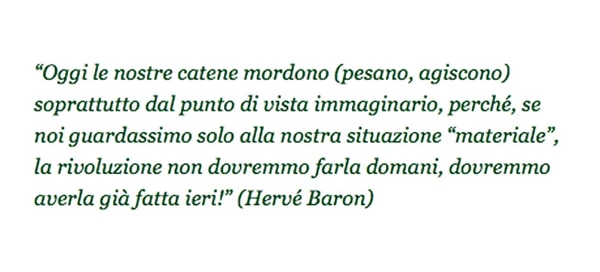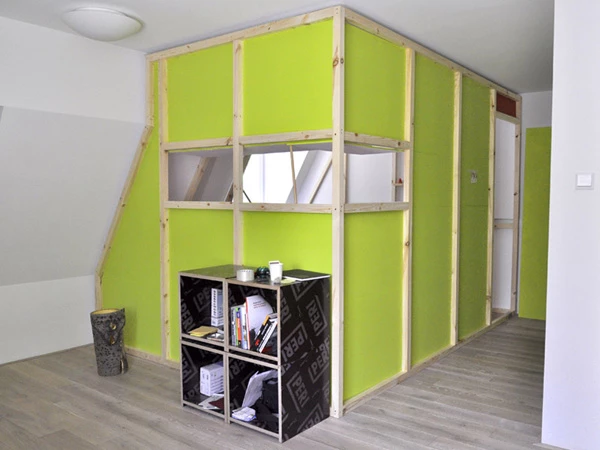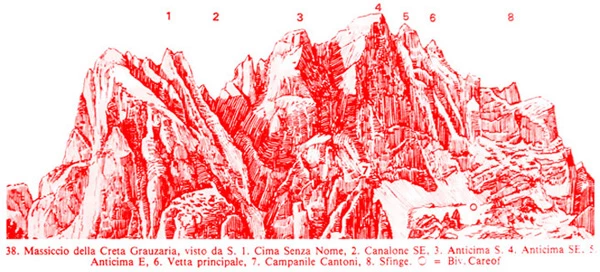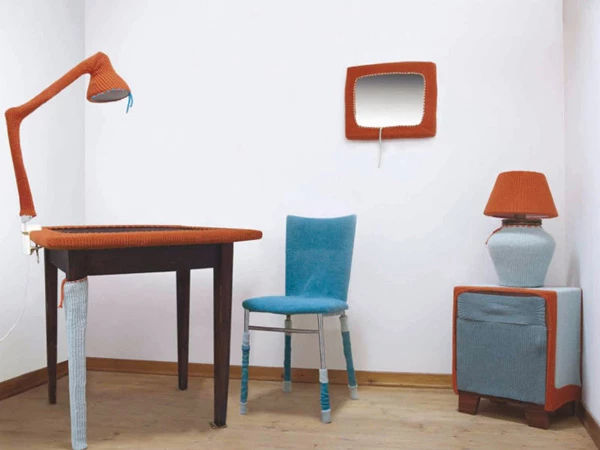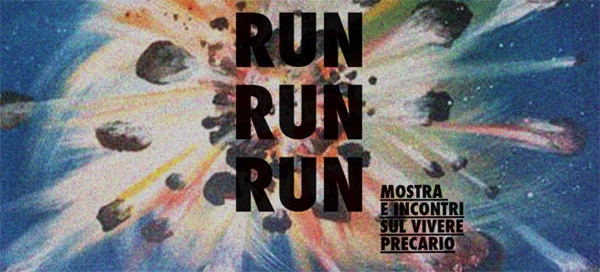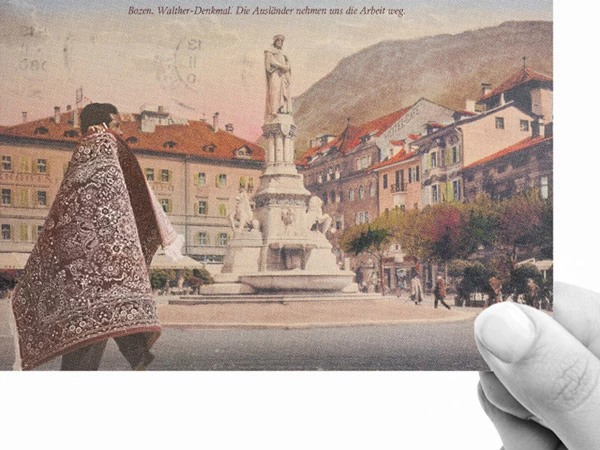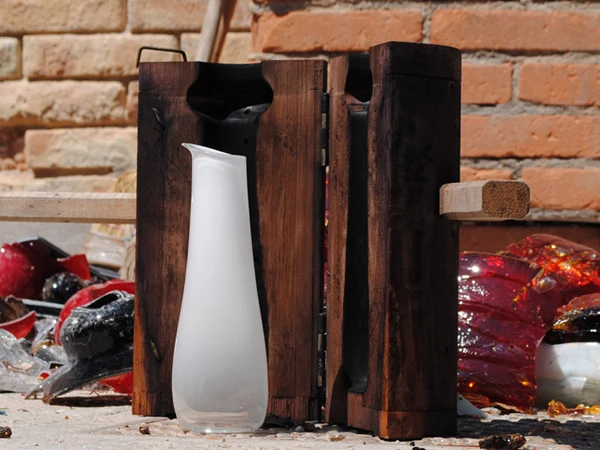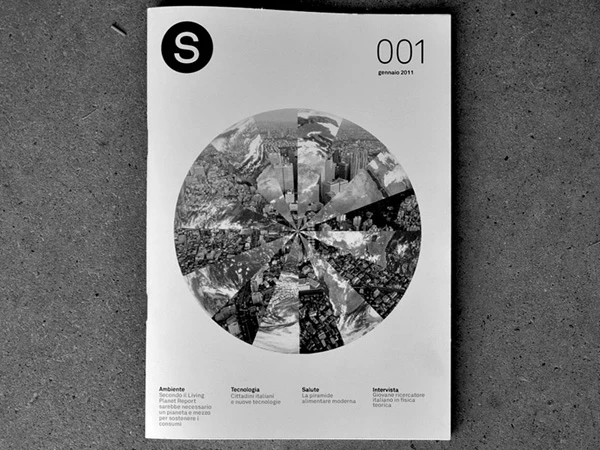Cantiere per pratiche non affermative
From 5.09 to 29.10.2011
•RUN RUN RUN RUN, show curated by Melissa Destino
•ABITO, project by Giovanna Zanghellini
•speech by movimento San Precario and Carrotworkers' Collective
What environments, structures, and organizational strategies can support designers in contributing to a more equitable, just, and non-alienated society? This question is the starting point for the reflection by Bianca Elzenbaumer and Fabio Franz, known as Brave New Alps. Since 2005, they have collaborated in the field of communication design, where “design” — understood as a process of confrontation and questioning of everyday reality — consciously positions itself as a political practice.
From September 1 to October 29, Brave New Alps transforms the exhibition space of Careof into a Cantiere per pratiche non-affermative (a Workshop for non-affirmative practices), an incubator space intended as a buffer between the worlds of education and work, where young designers can cultivate new ways of working. The project hosts six recent graduates selected through an open call, coming from the best Italian design schools: Isacco Chiaf, Stefano Capodieci, Caterina Giuliani, Manuel Guadagnini, the collective Quisai, and Giovanna Zanghellini will use the Careof space as a workplace for two months, sharing and advancing the path they started during their thesis. Through their thesis projects, the six designers aim to stimulate critical debate on specific social, political, or environmental issues.
The Milan project by Brave New Alps is developed from previous experiences in the English and Polish contexts (Goldsmiths College, London, January 2011; Centre for Contemporary Art Ujazdowski, Warsaw, March–July 2011) under the title Designing Economic Cultures, a research on precarity, alternative economies, and critical design. In Milan, it unfolds through public meetings and discussions, workshops, an interactive website, and a publication, involving figures — both inside and outside the design world — interested in proposing new productive and economic models.
Brave New Alps participates from September 1 to October 30 in the FDV Residency Program for creatives, a project in collaboration with the Comune di Milano and FDVLAB, curated and managed by Careof.
RUN RUN RUN RUN
exhibition and talks on precarious living
Within the project Cantiere per pratiche non-affermative
03 > 14.10.2011
Giovanna Zanghellini and Caterina Giuliani — two designers hosted by the Cantiere per pratiche non-affermative project — present RUN RUN RUN RUN, an initiative (an exhibition and a series of talks) aimed at analyzing and questioning the phenomenon of socio-economic precarity affecting contemporary society.
Starting from October 4, the “Cantiere” brings into dialogue different projects that contextualize shared research and issues:
RUN RUN RUN RUN — which gives its name to the entire initiative — is an exhibition curated by Melissa Destino (born 1984, lives and works in Bari) on the state of precarity. The perspectives of art and design combine and engage with those of a philosopher and a psychologist, aiming to offer a multifaceted and debatable scenario. Precarity is a structural component of liquid society; it is a condition that on one hand influences the management of the means of production — and consequently production itself — and on the other hand is decisive in the sphere of human relationships.
The works on display focus attention on unexpected combinations between geology and romanticism, on the feminization of labor, on the transformation of urban spaces, and shift interest from the dimension of sound to that of objecthood through ironic or aseptic perspectives.
The exhibition now being presented again at Careof previously took place for a very short duration in two different spaces in London, both closely linked to the idea of precarity: a social center occupied by activists and a disused shop. The ephemeral condition of the exhibition is reflected in the state of possible revocability told by the two venues that hosted it.
ABITO is a project by Giovanna Zanghellini (1986 - lives and works between Samone, TN and Bolzano). How are objects and the very concept of home changing following the crisis of fixed living spaces? What ‘mechanisms’ of adaptation might arise? Can the notion of precarity come to light in relation to conditions and thoughts about living? ABITO originates from a series of reflections on the phenomenon of precarity and its implications on contemporary living. A series of garments are staged by covering furniture and objects to adapt as much as possible to changing living contexts and recreate a sense of familiarity in different places. Their function is not easily discernible; they are mobile bodies without a stable identity. They can cover a lamp, like the legs of a table or the branches of a tree. But their real function is to reflect the ‘modus operandi’ of the precarious: they yield to compromises, perform somersaults, become flexible, and sometimes collapse. They exist on the border between form and formlessness, functional and symbolic. The project thus becomes a vehicle of a story that speaks less about things and more about people and their precarious living.
The Carrotworkers' Collective is a group of interns or former interns based in London. They mainly come from the cultural and creative industry sectors and regularly meet to collectively rethink the conditions of freelance work in contemporary societies. http://carrotworkers.wordpress.com/
San Precario is the patron saint of precarious workers. San Precario is irreverent, mocking, and offensive. San Precario is a marvelous creation of precarious intelligence, a free and independent expression from any party or union. San Precario is the protector of those who work for underpayment, who suffer the hardships of intermittent income and are crushed by an uncertain future that unites us all: sales clerks and programmers, workers and researchers. San Precario first appeared on February 29, 2004, in an Ipercoop in Milan, but his consecration takes place every year during Mayday, the precarious May Day demonstration that for ten years has brought together precarious workers from across Europe. Since then, he has been used and sanctified by dozens of workers’ groups, has gone viral, has marched throughout Italy, protected his faithful, and shaken their exploiters.
Thanks to EdilLegno, R&L arredamenti, Steiner Bau, and Oskar Heiss for providing the wood used for the construction of the tables in the space.
With the contribution of Fondazione Cariplo
With the contribution of the Autonomous Province of Bolzano - South Tyrol
Bio
Brave New Alps are Bianca Elzenbaumer (1980) and Fabio Franz (1983). They have been collaborating since 2005 and live and work between Valdaora (BZ), Nomi (TN), and London. After obtaining a BA in Design from the Faculty of Design and Arts, Free University of Bolzano, in 2010 they graduated in Communication Art & Design at the Royal College of Art in London. Currently, Bianca is pursuing a PhD at the Design department of Goldsmiths College, London.
Recent exhibitions selection. 2011: Graphic Design Worlds at the Triennale Design Museum in Milan. 2008: Manifesta 7 in Trentino-Alto Adige.
Recent awards selection. 2010: Museion Artist Award with residency at Centrum Sztuki Wspólczesnej Zamek Ujazdowski in Warsaw.
Recent projects selection. 2011 (ongoing): Designing Economic Cultures, a research project on precarity, alternative economies, and critical design. 2010/2011 Laboratorio Campano, an interactive site on the waste issue in Campania. 2009/2010: Department 21, an interdisciplinary department at the Royal College of Art in London. 2008: Fortezza Open Archive Franzensfeste, an oral history project and archive developed in collaboration with the inhabitants of the municipality of Fortezza. 2007: Decode Jerusalem, an alternative tourist guide to East Jerusalem.
Stefano Capodieci (1988), lives and works in Trieste. He graduated in Industrial Design in Treviso at the Faculty of Design and Arts of the IUAV University of Venice. The theme chosen for his degree was the design of a scientific insert for a national newspaper. The topics addressed through infographics and maps are environment, technology, and health.
Isacco Chiaf (1987), lives and works between Bolzano and Brescia. He graduated in 2011 from the Faculty of Design and Arts at the Free University of Bolzano, with the project Made in Italy (behind the scene), a performance that highlights, through animated analog infographics, the secret trafficking of light weapons managed by the Italian company Beretta. The project was realized in collaboration with the Permanent Observatory on Light Weapons (O.P.A.L) and Archivio Disarmo.
Caterina Giuliani (1985) lives and works as a graphic designer and illustrator in Ancona. In March 2011 she graduated from ISIA Urbino with a thesis on the state of critical debate around graphic design in Italy. On this occasion, she designed the platform www.callforcriticism.com, an online archive of critical writings on visual communication created through the participation of students and young professionals.
Manuel Guadagnini (1987) lives and works in Bolzano. He graduated in 2011 from the Faculty of Design and Arts of the Free University of Bolzano. With his thesis project, entitled Die Ausländer (The Foreigners), he created a source of information and exchange of opinions on the topic of immigration in the province of Bolzano.
Quisai is a collective born in Venice in 2010 from a collaboration between AUT – Riccardo Berrone (1982), Federico Bovara (1982), Luca Coppola (1982), Niccolò Mazzoni (1986) – and Matteo Franceschet (1984). For their degree thesis at the Faculty of Design and Arts of the IUAV University of Venice, Quisai worked on the project Quisai: tradizione, tavola e design. In collaboration with companies from Italian production districts, Quisai designs and produces tableware objects reflecting the traditional local cuisine. Currently, Quisai is composed of AUT, Francesca Coluzzi (1985), and Matteo Franceschet.
Giovanna Zanghellini (1986) lives and works between Trento and Bolzano. In 2010 she graduated from the Faculty of Design and Arts of the Free University of Bolzano with a product design project on existential precarity and its implications on living. The thesis investigates the role of everyday objects in making ‘a snapshot’ of reality and telling stories of precarious life.
Hervé Baron (1976), lives and works in Schio. He studied economics at the University of Pavia and is preparing a PhD entitled La moneta come rapporto sociale. Il contributo dei regolazionisti parigini at the University of Florence. His personal research lies at the intersection of economic and human sciences. He has collaborated with Andrea Fumagalli, translated texts by André Orléan and Paul Lafargue, and held economics seminars at the Universities of Pavia, Florence, and Pisa.
seminar program - IL CAPITALISMO E L'IMMAGINARIO SOCIALE
Seminar
IL CAPITALISMO E L'IMMAGINARIO SOCIALE
with Hervé Baron
26.09 > 29.09.2011 e 17.10 > 20.10.2011
Within the framework of the project Cantiere per pratiche non-affermative, Brave New Alps intends to propose a series of meetings led by the economics researcher Hervé Baron, on a topic relatively unknown to the Italian public: the theme of the social imaginary. The discussion will proceed “from the general to the particular”; after a brief overview introducing the topic and explaining why studies on the imaginary have mainly developed in France, it will move to a closer examination of Cornelius Castoriadis’s theorization. Subsequently, Castoriadis’s approach will be compared with Marx’s, in search of possible complementarities. This will be followed by two “practical” examples applying the concept of the imaginary to our society, concerning money and commodities.
Finally, the last three meetings will be dedicated to a “reading workshop” in which texts related to the discussed topics will be analyzed.
The meetings will have an “open” seminar format, where debate and participation from the audience will be welcomed.
The aim will not be to propose “ready-made” solutions but to stimulate questions and doubts from the participants. Bibliographical references will be provided so that everyone can, once the meetings are over, walk on their own feet.
September 26, 2011, 4 PM
What is the imaginary
September 27, 2011, 4 PM
The thematization of the imaginary in Cornelius Castoriadis
September 28, 2011, 4 PM
Castoriadis and Marx
September 29, 2011, 4 PM
A practical application of material and imaginary analysis: the “qualitative” analysis of money
October 17, 2011, 4 PM
A practical application of material and imaginary analysis: the commodity-image
October 18, 2011, 4 PM
Reading workshop: La religione del Capitale by Paul Lafargue
October 19, 2011, 4 PM
Reading workshop: La religione del Capitale by Paul Lafargue
October 20, 2011, 4 PM
Reading workshop: L'uomo sulla luna by Maurizio Grossi
